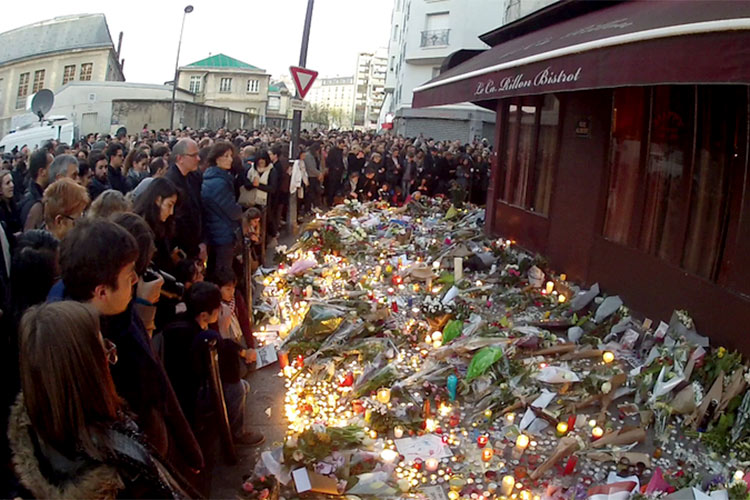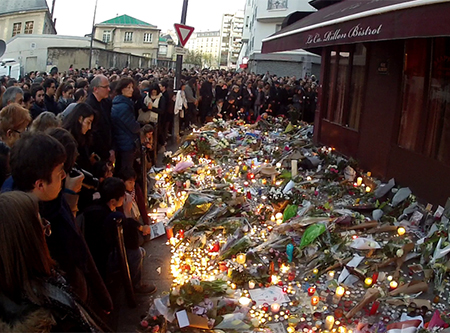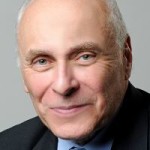Paris attacks: Butler, Nacht on freedom and geopolitics
“What version of the right-wing will prevail?" Professor Judith Butler asks, in a blog post from Paris following the Nov. 13 terrorist attacks there. Read Butler's piece, on Verso, and Professor Michael Nacht on policy implications of the attacks, on KQED radio's "Forum."

November 16, 2015

A gathering outside the bar-cafe “Le Carillon,” site of one of the Nov. 13 terrorist attacks (Citron via Wikimedia Commons)
The Nov. 13 terrorist attacks in Paris, which killed 129 people, “were quite clearly aimed at iconic scenes of daily freedom in France: the café, the rock concert venue, the football stadium,” Berkeley professor Judith Butler wrote from Paris the next day.
In a blog post, Butler reports on the state of emergency gripping French in the aftermath of the attacks, and the tone being set for what she calls an “enhanced security state.”

Judith Butler
“People want to see the police, and want a militarized police to protect them,” she writes. “A dangerous, if understandable, desire…. There is no curfew, but public services are curtailed, and no demonstrations are allowed.” Even gatherings to grieve the dead were made “technically illegal.”
A professor of comparative literature and critical theory, Butler predicts that France’s conversation on liberty in the coming months “will have implications for the security state and the narrowing versions of democracy before us.” As the French nation approaches regional elections, in December, and a presidential election in 2017, “the political question seems to be, what version of the right-wing will prevail?”
Read Judith Butler’s blog post on the Verso website.

Michael Nacht
In another response to the Paris attacks, public policy professor Michael Nacht joined other experts on KQED radio’s “Forum with Michael Krasny” on Nov. 16.
President Obama’s approach to Syria and the Islamic State “is increasingly falling on deaf ears politically, in the U.S. and elsewhere,” said Nacht, a former assistant secretary of defense for global strategic affairs.
“I think the American public are slowly but surely coming to the view that we need a change of strategy. But Obama remains haunted by the Iraqi analogy: we went in big time, we did overthrow the government, but once we pulled out, all hell broke lose. And he doesn’t see any alternative to that [in Syria].”
Listen to Michael Nacht and other experts discuss political and policy implications of the Paris attacks, on “Forum.”